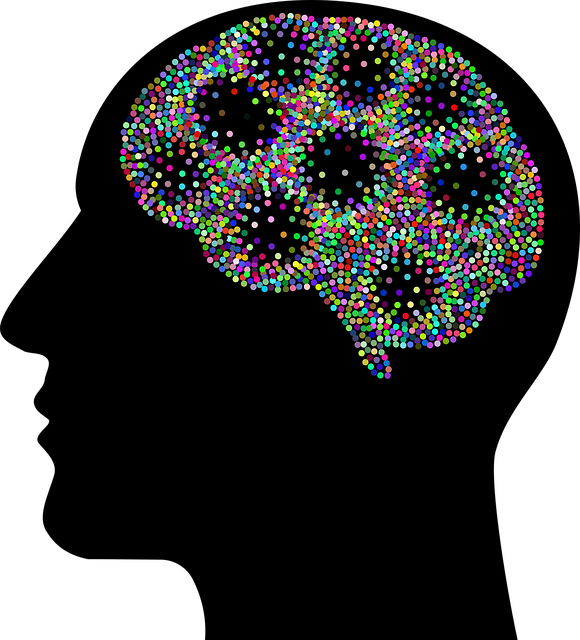Burnout among healthcare professionals, including those specializing in Highlands Ranch ADD-ADHD Therapy, is a growing concern with significant impacts on patient care. High-stress work environments lead to emotional exhaustion and decreased satisfaction, affecting productivity and quality of care. To combat this, proactive measures such as Stress Management Workshops, Trauma Support Services, and Confidence Boosting initiatives are essential. Incorporating mindfulness meditation and deep breathing exercises into daily routines can reduce stress. Highlands Ranch ADD-ADHD Therapy offers tailored tools for better stress management, self-care practices, and crisis intervention guidance, empowering healthcare providers to prioritize their mental health and reclaim their passion for patient care.
In today’s demanding healthcare landscape, burnout among providers is a pressing concern. This comprehensive guide explores strategies to combat burnout, emphasizing self-care and specialized therapy as critical components of provider wellness. We delve into the causes and impacts of this widespread issue, offering insights tailored to Highlands Ranch ADD-ADHD Therapy practices where high energy demands meet unique challenges. By implementing evidence-based approaches, healthcare professionals can thrive, ensuring better patient outcomes and a more sustainable career path.
- Understanding Burnout in Healthcare Providers: Causes and Impact
- Strategies for Prevention and Self-Care
- The Role of Specialized Therapy in Burnout Recovery
Understanding Burnout in Healthcare Providers: Causes and Impact

Burnout among healthcare providers is a growing concern, impacting not only individual well-being but also patient care quality. It manifests as emotional exhaustion, depersonalization, and reduced personal accomplishment, often stemming from prolonged exposure to high-stress work environments. Healthcare professionals, especially those in demanding specialties like Highlands Ranch ADD-ADHD Therapy, frequently face heavy workloads, long shifts, and complex patient needs. These factors contribute to elevated stress levels, leading to a decline in job satisfaction and overall mental health.
The consequences of burnout are significant. It can result in decreased productivity, increased errors, and higher rates of professional dissatisfaction. Moreover, it may negatively impact patients, as fatigued healthcare providers might offer less empathetic care. Therefore, proactive measures such as Stress Management Workshops Organization, Trauma Support Services, and Confidence Boosting initiatives are essential to address burnout. These strategies aim to enhance resilience, improve coping mechanisms, and foster a healthier work-life balance, ultimately ensuring healthcare providers can sustain their passion and dedication in their professions.
Strategies for Prevention and Self-Care

Preventing burnout is a proactive approach that healthcare providers must embrace to ensure long-term well-being and optimal patient care. By implementing strategies that foster self-care, professionals can maintain their resilience in the face of challenging work environments. One effective method is incorporating emotional healing processes into daily routines, allowing for stress reduction and improved coping mechanisms. Techniques such as mindfulness meditation, deep breathing exercises, or engaging in hobbies outside of work have been proven to enhance mental clarity and overall satisfaction.
Additionally, Highlands Ranch ADD-ADHD therapy offers valuable tools for self-awareness exercises, enabling individuals to gain insights into their triggers and develop personalized strategies. Regular sessions with a therapist can facilitate the exploration of emotions, thoughts, and behaviors, leading to better stress management. Crisis intervention guidance is another crucial aspect; learning how to navigate high-pressure situations and provide support to colleagues can create a sense of community and reduce burnout risk. These self-care practices, combined with professional support, empower healthcare providers to take charge of their mental health.
The Role of Specialized Therapy in Burnout Recovery

Specialized therapy plays a pivotal role in helping healthcare providers recover from burnout. Highlands Ranch ADD-ADHD Therapy, for instance, offers unique tools tailored to address the specific challenges faced by medical professionals. This type of therapy isn’t just about managing symptoms; it aims to equip practitioners with effective coping mechanisms and stress management strategies. Through personalized sessions, therapists help healthcare providers improve their mental resilience, enhance self-care practices, and cultivate healthy communication strategies—all crucial elements in mitigating burnout risks.
Incorporating mindfulness meditation techniques is a common therapeutic approach within these specialized programs. By fostering present-moment awareness and emotional regulation, mindfulness meditation aids in reducing stress and improving overall well-being. Additionally, therapists might incorporate aspects of Mental Health Policy Analysis and Advocacy to help providers understand and navigate systemic issues contributing to their burnout. These comprehensive strategies support healthcare professionals in reclaiming their passion for patient care while fostering sustainable resilience against future burnout episodes.
Healthcare provider burnout is a significant issue, but with the right strategies, it can be mitigated. By understanding the causes and impact of burnout, healthcare professionals can implement self-care practices and seek specialized therapy when needed. Incorporating these measures, such as those offered by Highlands Ranch ADD-ADHD Therapy for mental health support, can lead to improved well-being and enhanced patient care. Together, these strategies foster a healthier work environment and help providers maintain their passion and dedication in the long term.












